A "huge sigh of relief" is how Petrol Retailers’ Assocation director, Ray Holloway, described the reaction around the dealer network to the recent Arval/BP agreement.
He added: "It means Arval’s network of cards can be maintained. It’s a successful conclusion to the dispute and a step towards protecting a large part of the retailers’ volume."
Most BP retailers seem relieved the issue has been concluded - for now - but there is a lot of talk about the possible ramifications. Said Holloway: "The BP dispute with Arval had the potential to unsettle the market, but I would suggest things will settle back down now. I don’t think what’s happened damages Arval’s position in the market. But most of the oil companies have contracts with Arval and they generally last for about four years, so at some stage these companies will be renegotiating with Arval. If Arval has made it more economical for BP to accept its cards, then the other oil companies will want the same.
"So I would have thought we could expect another BP-type situation with the other oil companies at some point."
There’s no doubt BP threatening to ditch its deal with the UK’s biggest fuel card company really put the cat among the pigeons. BP announced plans to end its agreement with Arval in August. It blamed "escalating costs", adding that from October 31 BP would stop accepting Arval fuel cards. Retailers were angry at how they were told about the decision - via letter from the oil company’s fuels operations manager, Peter Molloy, and with no prior discussion with the dealer network. This of course followed BP angering dealers in March when it contacted them regarding the rise in its grade premia charges on fuel.
The BP letters regarding Arval stated that costs associated with the fuel cards had "increased significantly" and were "simply unsustainable". Retailers who wanted to continue accepting Arval would have to deal with the fuel card giant directly. There seemed to be general agreement that Arval had simply become, in the words of many, "too greedy". In Holloway’s words: "The balance was getting to be very wrong." But to lose Arval completely was too much for the dealers.
What followed can only be described as the use of "retailer power" as dealers got together to pressure BP into getting back round the negotiating table with Arval. It is understood that about 80% of BP’s dealer network were represented by a smaller group. And they succeeded. Said Holloway: "Dealers have shown that they have collective strength. The oil companies should take note of that. BP got itself into a position, and it took the retailers to get together and remind BP who they should be thinking about."
David Charman, of Parkfoot Garage in Kent, adds: "I’m obviously delighted that Arval and BP have reached an agreement. A lot of people have worked extremely hard to get this result."
It is understood the new deal will move to a fixed price per litre system, rather than a percentage.
Holloway believes the deal has been agreed "in principle", but details remain under wraps. He adds that it would have been "a disaster" for BP if it hadn’t reached an agreement, while it allows Arval to continue as the market leader. Without the agreement, the model could have changed.
Arval declined to give an interview to Forecourt Trader, despite repeated enquiries, citing the "sensitivity" of the topic. Its press office sent the following statement from Arval card development director Danny Clenaghan: "In what are challenging economic conditions, cost management is the key consideration for business, and fuel costs are an important area of focus. This strengthens the fuel card proposition because it is only with a fuel card that companies can truly manage their fuel costs effectively. The benefit to retailers comes through the volumes of fuel our fuel card customers purchase and their incremental spend in the shop. We know this because we regularly commission independent research which shows that fuel card customers tend to be the best customers -driving both volume and value through the forecourts."
Over at BP, Peter Molloy, UK fuel operations manager, commented: "We think it’s the best deal for BP and we hope it’s the best deal for Arval too - as well as for our customers and the fuel card customers." Molloy declined to give more details.
The fuel card business is huge in the UK - Holloway estimates it accounts for about a fifth of all fuel sales, with 20 or so different cards in circulation. About 1.2m drivers use Arval’s fuel cards, while most oil companies and some supermarkets, such as Tesco and Sainsbury’s, have their own cards.
BP itself offers a variety of cards, including its European card Routex Europa, as well as BP Plus, BP Plus Bunker, BP Agency, Euroshell (Agency) and Total. Dealers must accept BP cards as part of their contract. BP Plus has cross acceptance with Total (2,300 sites), and BP Agency with Shell (2,100 sites). According to BP, 1.3 billion litres were sold on its fuel cards last year. BP retailers who accept Arval agree terms in their BP contract, such as a smaller fuel margin and a monthly charge, and BP handles the card clearing and equipment costs.
BP retailer Paul Sykes, managing director of Shaw Petroleum, said fuel cards account for about 15% of fuel sales at his five sites. The Huddersfield-based company accepts Arval, BP and Keyfuels cards. He said: "Fuel cards are an important part of our business, especially with fuel volume down so dramatically. We get the margin and the volume on fuel. I’ve heard some retailers say fuel cards account for about 8% of their fuel business, and others say about 20% or 22%, so it varies a lot. We don’t have any details about the length of time the deal will last for. But it’s certainly sorted out for the duration of people’s existing contracts. Whether this will change for new contracts is another matter."
Over at Total, the company offers the Totalcard and recently changed the way it charges for use due to rising fuel prices. Iain Cracknell, Total UK marketing manager, explained: "In response to a recent dealer request we have changed our commission structure from a percentage to a fixed cost." Total’s international card is Eurotrafic, and it also accepts BP and Shell cards at about 3,000 sites. The company says there is no cost for the retailer directly linked to Total card. Cracknell adds: "Total has accepted Arval cards for many years but due to the volatility of the market we are currently in discussions with Arval about the high commercial costs associated with acceptance."
Esso offers the Fleet card and the Truck card. Both can be used in Europe and in addition the Fleet card can be used at Shell sites in the UK and Europe. According to Esso, there is no sign-up charge for retailers and the Esso card pays a fixed pence per litre as commission to dealers.
An Esso spokesman said: "For most Esso dealers the commercial arrangement with Arval is through Esso (the Esso Cardbase/CTAC package)." A small number of Esso dealers invest in their own card processing equipment to process cards other than Esso Card and Shell Card and have their own arrangements with Arval.
Fuel cards help increase fuel volume and footfall and can also help avoid potential exposure to bad debts.
For Shell’s retailers there is no initial financial outlay, and any commission charges "are part of the total value of package when signing for a supply contract". A Shell spokeswoman said acceptance of the EuroShell Card is a core element of supply agreements with retailers, and there are more than 350,000 card holders (30,000 companies). Shell is looking at ways to cut fuel card costs to itself and retailers.
At Chevron, all sites take Arval and some take CH Jones and RED bunker cards. Chevron also offers its Business card and Fastfuel card. Karen Goane, Chevron fuel card sales manager, said: "The issue of margins and costs will always be an important one for our retailers and quite rightly so. We review our fees annually, to ensure we remain competitive."
According to Chevron, a customer on the Business card remains loyal for an average 44 months. The main reasons for losing a customer are if the site closes or changes brand. Its retailers have agreements directly with Arval but Chevron helps with the negotiations. This is the same situation at Jet, which also helps dealers with Arval negotiations. The company offers the JetCard, for which retailers pay a fixed pence per litre fee and get normal margins on fuel. There are 23,000 JetCards in the UK.
Holloway expects Arval to continue being the main fuel card company in the UK. He added: "Fuel cards can be good but if a retailer isn’t making money out of them they should be brave enough to get out. Retailers shouldn’t be a slave to volume. Fuel cards affect so many things for a retailer, from fuel volume and therefore income, but also to the real estate worth of their site. A lot of the value of a forecourt these days depends on the volume of fuel sales, which is crazy.
"But the partner who shouldn’t be overlooked in all of this is the retailer..."
----
=== Arval forecourt research 2008* ===
* Arval fuel cardholders are high- mileage drivers, with 43% of all their journeys made outside their region.
* The average annual mileage was 25,655 for Arval fuel cardholders, which is higher than other fuel cardholders and non-fuel card business drivers.
* While the proportion of fuel card customers travelling more than 30,000 miles annually is increasing, the proportion of non-fuel card drivers travelling this mileage on an annual basis has fallen compared to the previous year’s survey.
* 51% of Arval fuel cardholders prefer to buy fuel through the forecourt shop, and fuel cardholders tend to buy higher volume products such as sandwiches and pies.
* 52% of fuel card business drivers travel more than 30,000 miles annually compared to 43% the previous year.
* In comparison, 26% of non-fuel card business drivers travel more than 30,000 miles annually compared to 32% last year.
* In 2008, the average annual mileage for non fuel card business drivers was 21,285. This compares to 25,655 for Arval fuel card- holders.
* In 2008, fuel cardholders had an average spend on fuel of £49.60. For non fuel card business drivers this figure was significantly lower at £35.32.
* The most popular impulse and food items purchased by fuel cardholders in store were: drinks (31%), newspapers (30%), confectionery (28%), cigarettes (25%) and sandwiches (24%).
* For fuel card users the most important factor in choosing a forecourt is convenience (57%).
Research was carried out in February 2008 by shopper research company Him on behalf of Arval.




















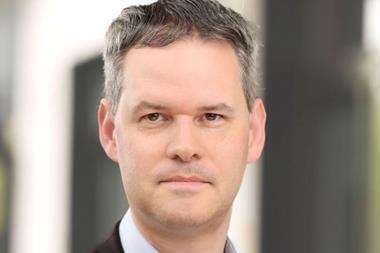
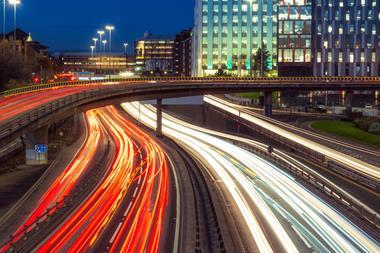

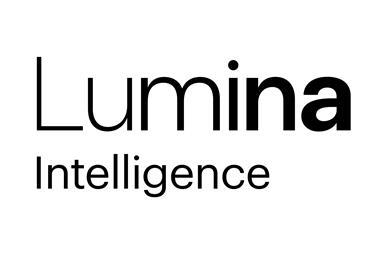
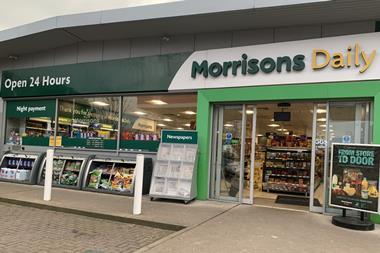
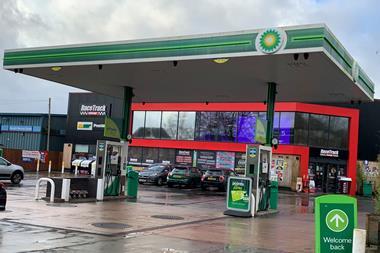

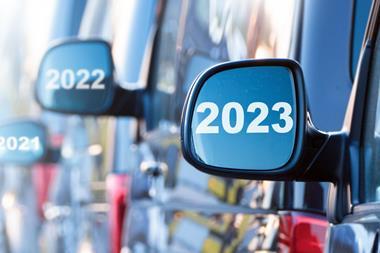
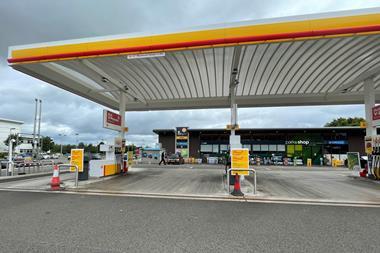
No comments yet